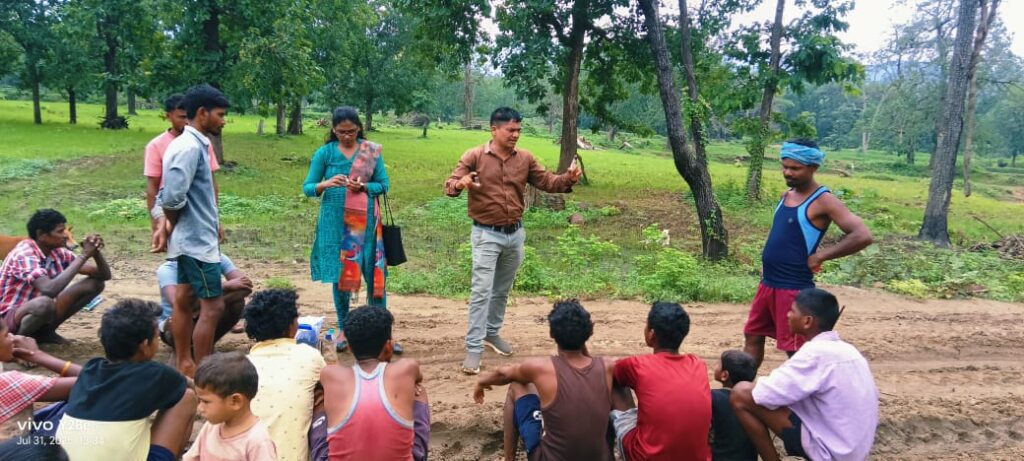Tested the Water, Opened Eyes – Villagers Become Aware About Drinking Water Quality

Raipur, 02 August
In the Naxal-affected Bijapur district, alongside development, awareness is also increasing in areas like social welfare, health, and sanitation. The administration is making various efforts to educate and inform people. One such unique and inspiring public awareness initiative was carried out under the Jal Jeevan Mission in the villages of Bamanpur, Gunjeparti, and Nambi, located in the Bhopalpatnam and Usoor development blocks of Bijapur district, focusing on water safety and hygiene.
Although these villages had access to drinking water under the “Har Ghar Nal Se Jal” scheme, some residents, due to traditional habits or lack of awareness, were still using water from rivers and streams for drinking. This posed a serious threat to their health. In a review meeting of the Jal Jeevan Mission, the administration decided to launch a campaign to practically educate villagers about water quality and the associated health risks. This campaign was initiated under the supervision of officials from the Public Health Engineering Department.
A team was formed and sent to the villages under the leadership of a chemist from the District Water Testing Laboratory. Upon arrival, they conducted live water testing of river/stream water and tap water in the presence of the village sarpanch, secretary, anganwadi workers, mitanins, and villagers. When the villagers themselves saw the harmful contaminants present in river water and how the tap water was clean and safe, they pledged to use only tap water for drinking in the future. This initiative was well-received by the locals, who called it an “eye-opening” experience.
This initiative stands as clear proof that when people are educated with the right information and scientific approach, they are ready to embrace positive change. The campaign has proven to be a significant step toward achieving the goals of the Jal Jeevan Mission. Today, villages like Bamanpur, Gunjeparti, and Nambi are not only self-reliant in water availability but are also vigilant about its quality.
